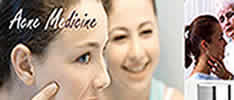Proper nutrition is very essential for the treatment and prevention of heart disease or congestive heart failure.
Limit salt and sodium intake. Sodium, a component of salt, causes fluid retention. And fluid retention raises blood pressure. High blood pressure aggravated congestive heart failure. By reducing the intake of salt and sodium fluid retention (edema) of your feet, ankle, legs, abdomen may be reduced.
The recommended limit of sodium intake for congestive heart failure sufferers is at 1,800 milligrams per day. An average American consumes almost double of that amount. Most of the sources of salt and sodium are processed foods, fast foods, canned soups and sauces, lunchmeats, frozen dinners and snack foods.
Increase your magnesium intake. A low level of magnesium in blood is common to congestive heart failure sufferers. The disease itself depletes the mineral, as do diuretic medications, the kind that help control blood pressure and relieve the swelling. Low magnesium in blood can aggravate the congestive heart failure. It is suggested that you eat a lot of food that contains magnesium such as soybeans, oatmeal, nuts, seeds, low-fat dairy items, and seafoods.
Increase your potassium intake. Potassium is also depleted by congestive heart failure and diuretic medications. Thus it is best that you increase your potassium intake like magnesium by eating foods that are rich in potassium such as vegetables, beans and whole grains.
Low levels of thiamin, a B vitamin, contribute to sodium retention and heart failure. Older people are at greatest risk for thiamin deficiency. They also have the highest rate of congestive heart failures. Increase your intake of thiamin, by eating thiamin rich foods such as beans, peas, eggs, fish and poultry.
Optimize your fluid consumption. Fluid retention is a symptomatic characteristic of congestive heart failure. Reducing your fluid intake may help reduce swelling of your feet, legs and ankle. This though is a bit tricky, because too much deprivement of fluid intake may cause dehydration, which may cause other problems especially to older people. So be careful. It is suggested that 2 quarts of water would be sufficient for people suffering from congestive heart failure. If you feel thirsty and need a drink try not to drink too much and sip slowly. It is also suggested that you may suck on ice drops or ice chips. Chewing gums and sucking hard candies may also stimulate salivation.


